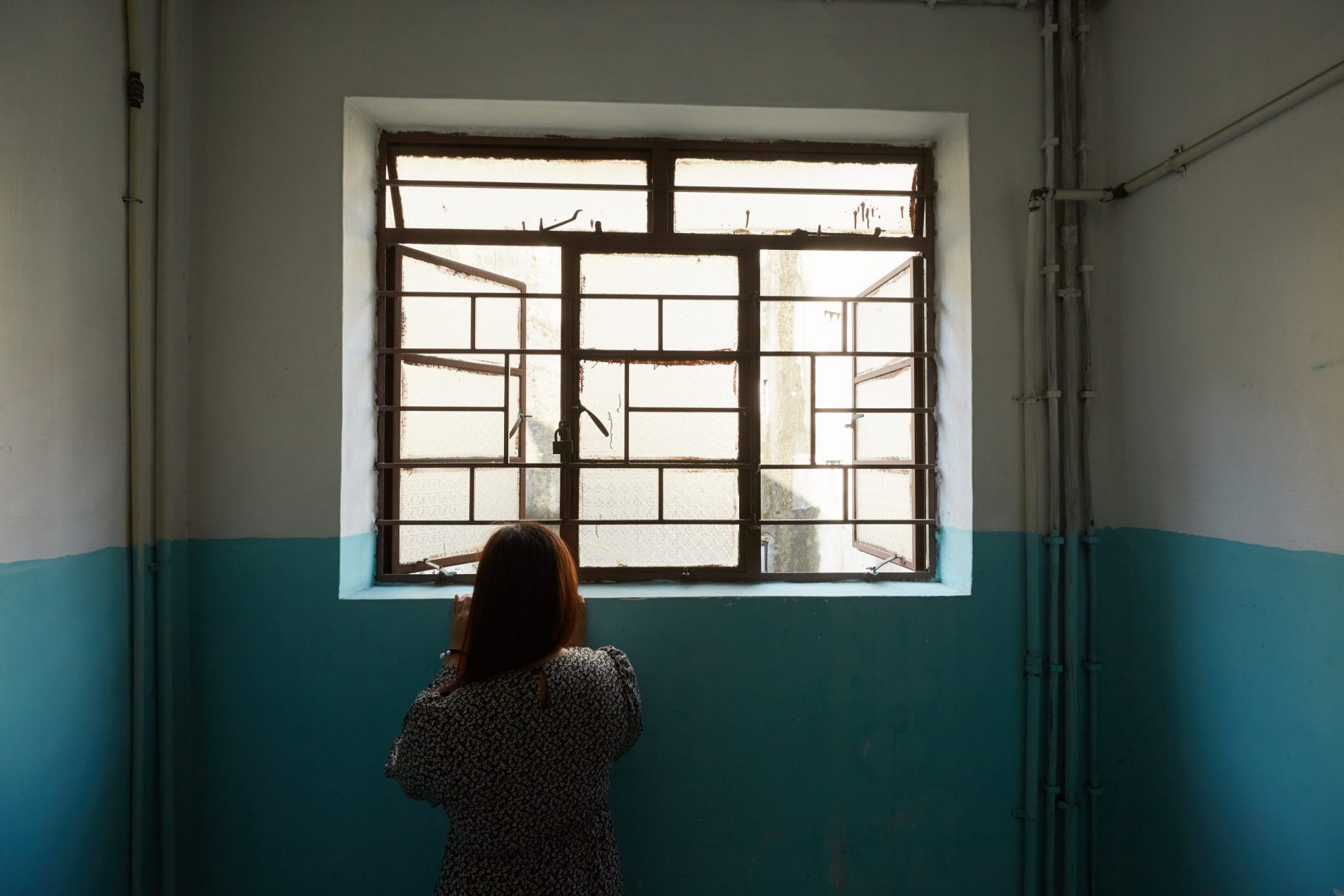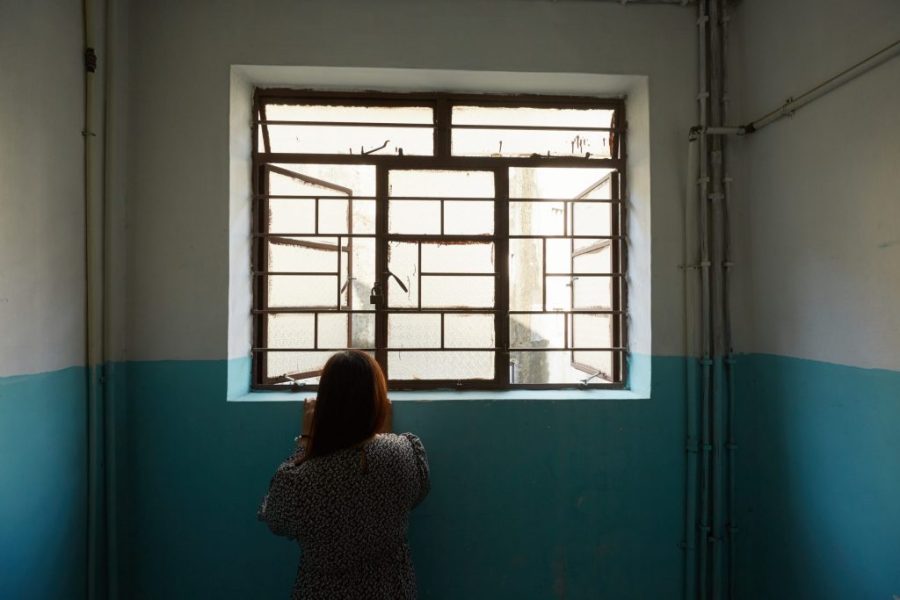On a Sunday afternoon in January, Elisa* stands in a long queue outside Escola São João de Brito, on Rua de Pedro Coutinho, waiting to collect food and essentials. She’s been visiting Caritas Macau’s charity drive every other week for three months, trying to make the supplies last as long as possible each time.
Originally from Indonesia, the 40-year-old used to work as a waitress at a local restaurant but her employer terminated her contract in September 2020. She’s been unemployed ever since. But she is not alone; there are hundreds of other people in line, all facing similar situations.
“Every week, we see an increased number at the drive,” explains the charity’s Secretary-General Paul Pun Chi Meng. “There would be some single mothers or new parents asking for assistance.” There are also some who ask for help to pay bills at the hospital, but this is beyond the charity’s capacity, he says. For now, they are focusing on providing food and basic essentials.

The number of people in need of support – especially migrants from Indonesia, Myanmar, the Philippines and Vietnam – has gradually increased since the start of the Covid-19 pandemic. According to Jassy Santos, the chairwoman of the Progressive Labor Union of Domestic Workers – Macau (PLU), this is partly due to a new law that came into effect on 5 October 2020.
Law No. 10/2020 states that non-residents seeking employment in Macao need to secure a work permit before entering the SAR. For migrant workers who have had their permits expire or contracts terminated during the pandemic, this poses a challenge. The law requires such individuals to leave Macao first, then return to seek a new permit.
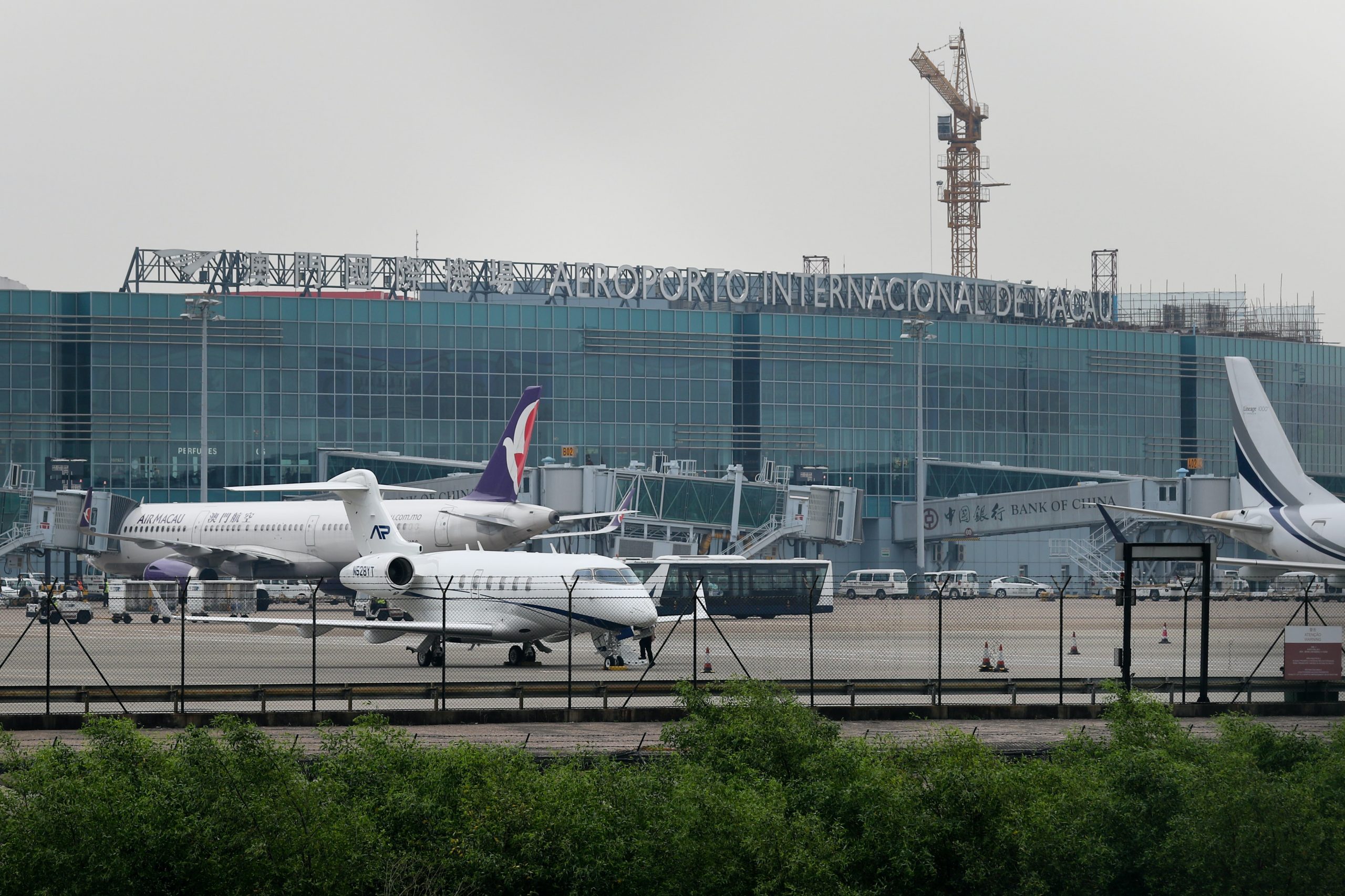
But with few overseas flights available and strict quarantine rules around the region, many find themselves waiting in limbo without a job nor a way home. Even if they are able to leave, blue-card holders would not be able to return to Macao since only residents are currently allowed entry due to Covid-19 restrictions.
“[Non-resident workers] cannot work or apply for a work visa here in Macao, yet they still need to pay for their housing, food, clothing without any assistance. How are they to keep on going?” Santos says, stressing: “Pobre kaayo mi sa nga tanan [meaning, ‘we’re already quite impoverished’].”
Record high unemployment levels
Under the new law, the Public Security Police (the body in charge of the city’s border control and immigration matters) must approve a non-resident worker’s stay in Macao before issuing an “arrival notification” for the applicant to enter the SAR. Only then can a non-resident worker secure a permit to acquire a job in Macao and reside in the city.
As the government explained during a discussion on 23 June 2020, the new measure enables immigration officers to identify whether arrivals are entering for tourism or work. In addition, the amendment regulates only “non-skilled, non-resident workers” and foreign domestic workers, while excluding professional non-resident workers, explains lawyer Icília Berenguel of C & C Lawyers.
“The bill aims to improve and enforce the management and documentation of non-resident workers in Macao. Namely, [the government] wants to create a register with all the details of non-resident workers to have a better idea of imported manpower,” says Berenguel. But when lawmakers first began discussing the contents of the bill in June 2019, the pandemic had yet to become a factor. “Now, of course, this law creates an obstacle [for non-resident workers].”
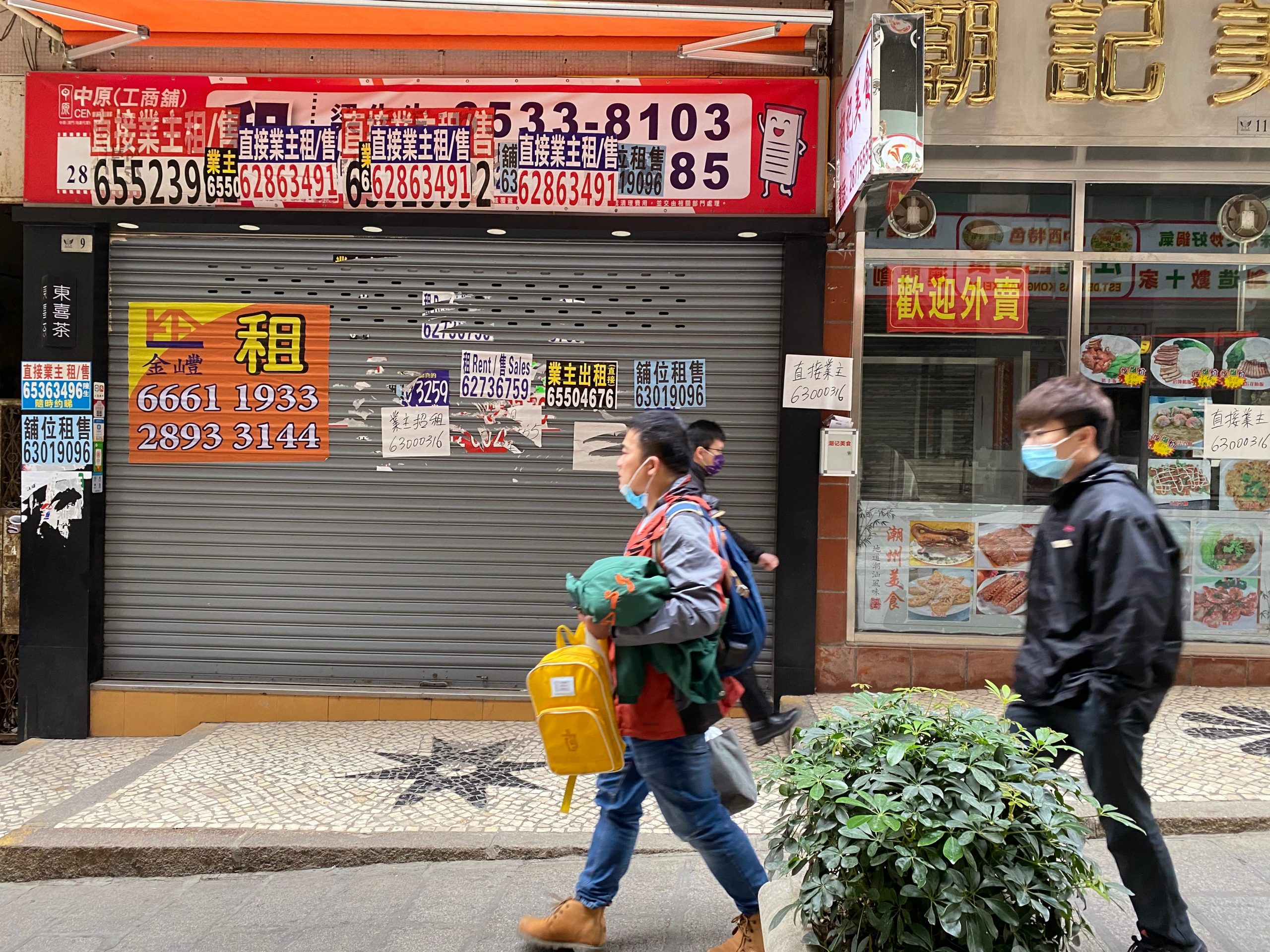
Macao reported its first Covid-19 case on 22 January 2020, which quickly led to strict travel restrictions. The tourism industry, one of Macao’s most important sectors, ground to a halt for most of 2020 with arrivals plummeting 78.6 per cent year-on-year by December, according to Macao’s Statistics and Census Bureau department (DSEC).
By the fourth quarter of 2020, the city’s overall unemployment rate stood at 2.7 per cent – the highest in 10 years. For the entirety of 2020, the general unemployment rate was 2.5 per cent. Unemployment among local residents rose to 3.6 per cent in 2020, up 1.3 percentage points compared with 2019.
Migrant workers in Macao have been hit even harder. According to a December 2020 report by the Labour Affairs Bureau (DSAL), the number of non-resident workers employed in Macao fell by 8.2 per cent, from 193,498 in January to 177,663 at the end of 2020. Among them, 112,214 were from mainland China; 31,228, the Philippines; 12,491, Vietnam; 5,881, Indonesia and 3,957, Nepal. The last time non-resident employment fell to this level was in October 2017, when the city recorded 176,669 non-resident workers.
While layoffs, largely due to Covid-19, impact all employees, not just migrant workers, Santos says the latter have fewer options. “If a migrant worker is terminated, they cannot find another job anymore [due to the new law] and can only wait for repatriation,” says Santos. “Or if their employer loses his or her job, the migrant worker could then be terminated.”
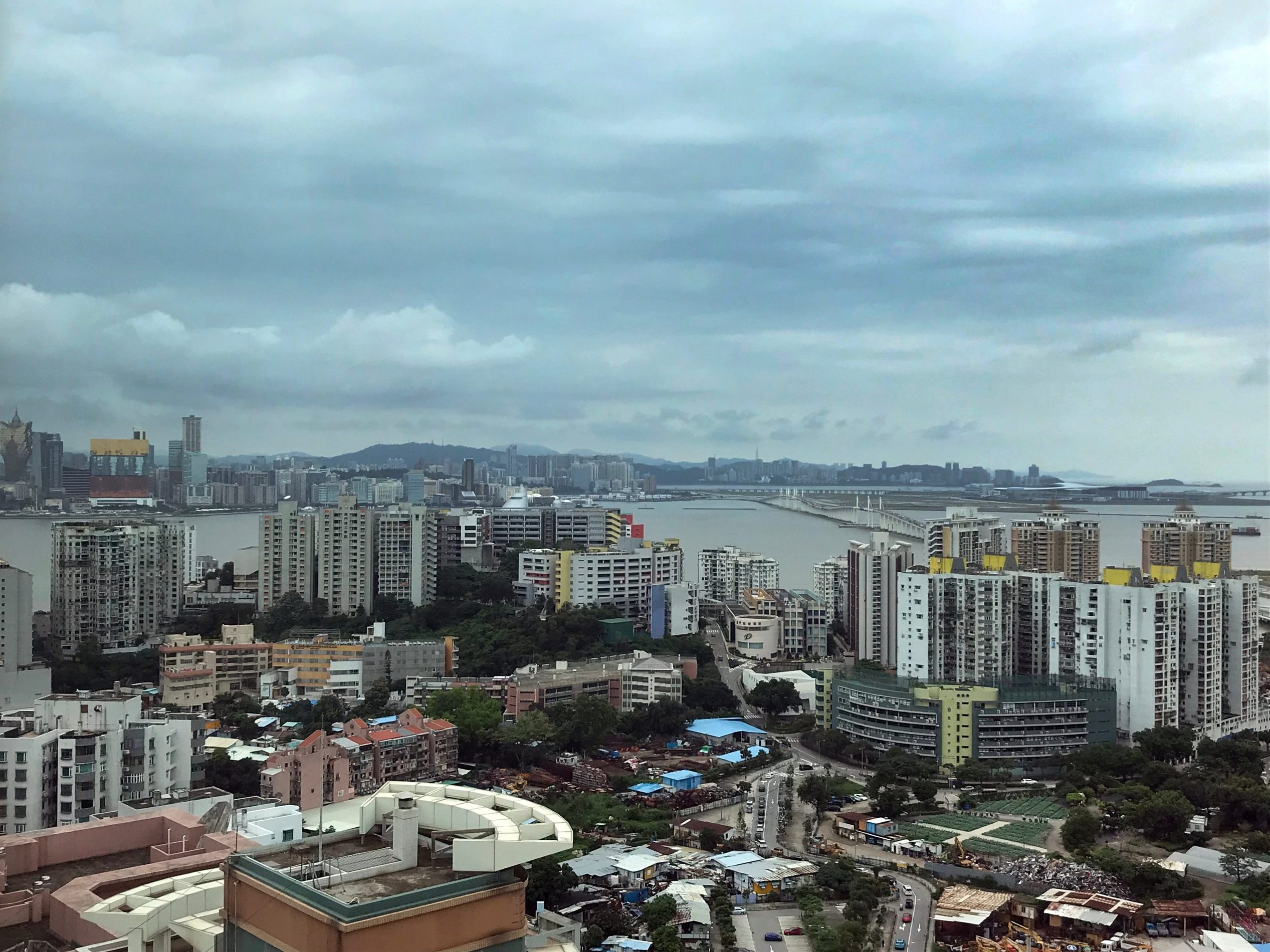
‘Blue card’ life under Covid-19
Informally known as ‘blue cards’ – based on the colour of the ID card they carry – non-resident workers work across various industries in Macao, from gaming to hospitality, domestic work, restaurant services, and management positions.
Bing* is a 47-year-old Filipino domestic worker who has been working in the city for nearly five years. She began to worry in the autumn of 2020, when her employers’ colleagues started losing their jobs. Around the same time, she learned about the new law and realised she could be vulnerable if either, or both, of the adults in the family she worked for were laid off.
Her employers assured her it would be OK, so she renewed her contract with the family in October 2020. In December, both employers lost their jobs and had messaged her with the bad news: they would need to let her go.
“I was shocked and didn’t know how to respond immediately,” she says Bing. “I was quite upset. I had been with them for nearly three years by that point.”
As the sole breadwinner in her family, she had a responsibility to send home money to her parents, as well as her three children and two nieces. “For me, if I receive any direct help here, it will only benefit me. But what about my family back home? What about them?”
In October, when her contract was renewed, she received MOP 4,500 for the next three months until her employers terminated the contract in December. The year prior, her salary was MOP 4,200, with MOP 2,000 going to her children in the Philippines.
“Wala jud ko’y savings [‘I really don’t have any savings’],” she stresses in her native language of Bisaya, before tallying her monthly bills in her head. “MOP 1,000 for the boardinghouse, MOP 150-200 for monthly transport, the money I have to send to my family… there are also the bills, as well as food and emergency expenses. It doesn’t leave much else.”
Bing found another job through a referral by her former employer, but it is a risk to work in Macao since her work permit has already been terminated. “Of course I’m nervous about it,” she says. “But I can’t forget about my family. For them to survive, I’ll do what I have to do even if I get caught.”

Elisa is also struggling to make ends meet after losing her job as a waitress. In her former job, she made roughly MOP 3,000 per month, much of which went towards her MOP 800 monthly rent at a boarding house, utilities, groceries, and other expenses. She started visiting the charity drive while waiting to be repatriated to Indonesia, where she plans to stay and spend time with her two children, aged 17 and 22.
“They’re all grown up now and I need to spend time with them,” she says. “I didn’t get to be there when they were younger.”
For Elisa, repatriation has taken several months due to fewer flights and Covid-19 travel restrictions. She has tentatively secured a place on a repatriation flight home on 25 February; however, she has exhausted her savings and may not be able to afford the air ticket, which will cost MOP 4,100-5,100. Normally, the flight costs around MOP 2,800 but the pandemic has increased airfare, according to Elisa. In the meantime, she plans to continue visiting the Caritas food and essential drive to stay afloat.
According to the DSAL, the cost of the flight should fall to the employer – not the employee – who is responsible for covering the cost of transport home when he or she terminates a contract. If an employer does not cover the cost, they could be fined anywhere from MOP 20,000 to MOP 50,000, says Santos, but only if the worker files a complaint.
“Workers here are not used to complaining. If there’s no complaint made, then nothing happens,” she explains. “It’s the reason we keep organising awareness campaigns and educating fellow non-resident workers, because we want them to know their rights.”
A total of 2,643 Filipinos have been repatriated since March 2020 when the Philippine Consulate General in Macao started coordinating flights. So far, the consulate has organised 14 flights, the most recent of which took off on 15 January 2021 and repatriated 200 Filipinos.
14TH REPATRIATION FLIGHT FROM MACAU
The Philippine Consulate General, with the assistance of POLO-OWWA in Macau,…
Posted by Philippine Consulate General in Macau SAR on Tuesday, January 19, 2021
Repatriation flights organised by consulates started last year. In June 2020, the Consulate General of Nepal repatriated at least 80 Nepalese nationals. The satellite Macao office of the Indonesian Consulate has so far repatriated 353 citizens via Hong Kong International Airport between May and December 2020 with plans to repatriate another 123 nationals in “forthcoming months”.
The Overseas Vietnamese Association is also working to repatriate around 3,000 Vietnamese nationals stranded in Macao, coordinating with the Consulate General of Vietnam in Hong Kong to arrange flights. And on 12 January 2021, the Consulate General of Malaysia in Hong Kong and Macau also organised two special chartered flights to repatriate 50 Malaysians waiting to leave Macao.
Companies have also contributed to the effort to ensure stranded non-residents find a way home. In June 2020, Sands China Ltd repatriated some 130 laid-off Filipino workers on a separate flight, as did Menzies Macao for roughly 60 of its former employees. Melco Resorts & Entertainment organised a flight of its own dismissed employees in May 2020.
The case for domestic workers
For a migrant domestic worker who loses a job during the pandemic, it will likely be very costly to secure a new work permit and return to Macao down the line, says Santos. In most cases, this will require an expensive, slow repatriation process, followed by agency fees to secure a new job placement.
The updated law will also impact employers. “Migrant workers consisted of nearly half of the labour force before the pandemic,” says Melody Chia-Wen Lu, an associate professor at the University of Macau who has studied labour mobility and migration in Asia. “SMEs [small- to medium-sized enterprises] and families who are dependent on migrant domestic helpers will be seriously affected.”
Going forward, it will become more expensive and time-consuming to hire migrant workers, says Lu. “It may lead to higher brokering fees, not only for Macao agencies but also the broker agencies at the sending countries and the intermediaries between various broker agencies,” she adds. “The employers may need to pay higher recruitment costs in terms of time and money. For the families who have urgent care needs, it can be difficult for them to wait for months.”
If the costs – in terms of time, money and uncertainty – are too high, prospective non-resident workers might decide not to return to Macao, adds Lu. In which case, locals would need to find other ways to cope either by hiring local residents or workers from mainland China, she says.
“This depends on the global labour market and demands. We do not know what the world will be like after the pandemic is over, and we do not know whether Macao will still be an attractive place for migrants despite the new law,” says Lu. “In a nutshell, this is an exceptional period of time and we cannot predict what will happen in the future.”

“Hundreds of families are in need of help [and] there is an urgent need for extraordinary measures regarding the enforcement of Law No. 10/2020,” says Berenguel. “Perhaps the suspension of its application will help a lot.”
Within the Filipino community, Santos says the PLU has been doing its best to support non-resident workers whose jobs have been affected. “We usually take two to three calls a night to help domestic workers going through difficulties right now – many aren’t sure what their next step will be,” says Santos.
For Bing, uncertainty is a new reality, impacting her decisions every day. “I can only ask, for many of us in similar situations, to be given a chance [to work] until we can return home. We’re still here and many of us can’t simply leave,” says Bing.
“It’s really difficult and I can only pray our situation is alleviated. What’s prohibited is prohibited, but we still need to find a means to live while we’re here and most importantly support our families back home.”
*Names have been changed at the request of the interviewees
